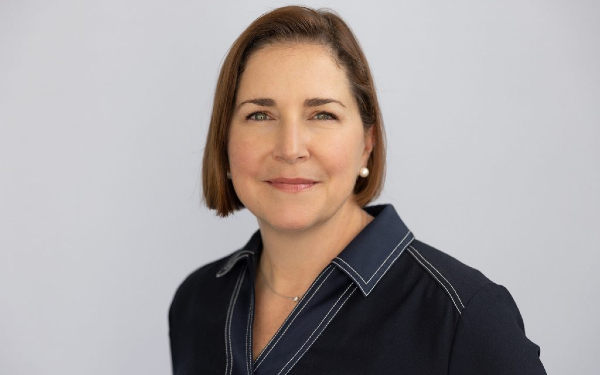
A new approach to private law cases has substantially improved children and families’ experience of the courts, including by reducing the re-traumatisation of domestic abuse victims and survivors, say practitioners.
Those were among the findings of a Ministry of Justice (MoJ) commissioned evaluation of the implementation of the private law pathfinder pilots in Dorset and North Wales since 2022.
However, the approach poses resource challenges for Cafcass and Cafcass Cymru because of the need for social workers to invest significantly more time working with families at the start of cases compared with the existing child arrangements programme (CAP) system, the report added.
‘Adversarial system undermining courts’ response to harm’
The pathfinder was a response to a 2020 report – produced for the MoJ by an expert panel – into the way the family justice system handled private law cases that involved harm to children or parents, such as domestic abuse or child sexual abuse.
This found that abuse was being systematically minimised, particularly to promote contact, children’ voices were going unheard, often due to practitioners’ lack of time, and there were significant barriers to victims reporting harm.
One of the root causes of this, the panel concluded, was an adversarial court system that re-traumatised victims and survivors of abuse, was not well-suited to determining the truth of allegations of domestic abuse and CSA and meant children’s voices were not heard.
The panel proposed that the government test an investigative, problem-solving alternative to the CAP, with the MoJ launching the private law pathfinder in response.
About the pathfinder model
Under the CAP, a Cafcass/Cafcass Cymru practitioner carries out an initial safeguarding check of possible risks of harm to the child, drawn from other agencies and a telephone call with the parents who are the parties to the dispute.
This is then summarised in a safeguarding letter or, in Wales, a safeguarding report to the court, providing advice to inform the first court hearing. However, the process does not involve seeing the child while, in a blog post last year, family court head Sir Andrew McFarlane said it left the courts with “very little information about a case at the first hearing”.
By contrast, the pathfinder involves an information gathering phase, during which the family court adviser (FCA) carries out an in-depth assessment to understand the impact of issues in the case on the children involved, resulting in a child impact report (CIR).
This is generally informed by speaking to the children – as well as the parents – to understand their wishes and feelings, and also, where relevant, by domestic abuse stalking and honour-based violence (DASH) risk assessments, carried out by specialist domestic abuse agencies. Where the local authority is involved with the family, the CIR may be completed by a council social worker.
The court then reviews the report and may recommend non-court resolution, request further investigation of issues, make interim orders, such as periods of supervised contact, or hold a decisions hearing and make a final order. The initial CIR may be supplemented by a second one later in the process.
The process is supported by a case progression officer, a court administrator whose role involves ensuring cases are managed efficiently and being a point of contact and support for families.
‘Substantially improved experiences for children and families’
The evaluation report compared the implementation of the pathfinder in Dorset and North Wales with the running of the CAP in two comparison sites. This was based on interviews with 67 family justice, local authority and domestic abuse practitioners and officials, carried out from September 2023 to January 2024, and an analysis of the respective costs of the pathfinder and CAP approaches.
The report, by the University of Central Lancashire, consultancy Mutual Ventures and evidence body the Centre for Justice Innovation, found that the benefits of the pathfinder, compared with the CAP, were “extensive”, according to research participants.
These included “perceptions of substantially improved experiences and outcomes for children and families, fewer hearings and reduced time spent in court and better information gathering to inform safety planning”.
Broadly, practitioners believed that the pathfinder’s aims – to reduce the adversarial nature and trauma of the court process for families, centralise the voice of the child, improve the way allegations of domestic abuse and other harms were dealt with, and ensure better co-ordinated working across agencies – were being met at the two pilot sites.
Child impact report seen as key to model’s benefits
Participants saw the information gathering and assessment process, and the child impact report in particular, as a critical success factor, with the early engagement of the child meaning that their “voice was centred from the outset” and that “their needs and safety were prioritised throughout the case”.
They reported that the earlier gathering of information helped narrow down the issues in the case and ensured the court had more in-depth information from a wider range of sources on which to base its decisions, resulting in better safety planning, fewer hearings and earlier resolution.
This was also supported by the work of case progression officers in co-ordinating cases and by improved communication between agencies.
Overall, the analysis found similar costs per case between the pathfinder and CAP, with the lower cost brought about by fewer hearings in the former balanced by higher costs from the need to fund domestic abuse agencies, something not provided for by the CAP.
Social worker time frontloaded creating ‘resourcing challenge’
Pathfinder cases cost Cafcass/Cafcass Cymru 4-7% less on average than those in CAP comparison sites.
The CIR took family court advisers 19 hours to complete on average, compared with nine hours for a safeguarding letter in England. But this was offset by time saved on producing further intensive reports, notably section 7 welfare reports, which take about 25 hours on average, the report said.
However, under the pathfinder, FCAs must complete most of their work in the first six to eight weeks of a case, with the CIR expected to be delivered within six weeks. By contrast, the work involved in a CAP case, though potentially greater, is spread over a longer period of time.
The evaluation said this created a “resourcing challenge” for Cafcass and Cafcass Cymru, with FCAs reporting that it was difficult to produce the report to the required timeframes because of the need to arrange meetings with children and family members. One area also had to hire agency staff to ensure it had sufficient staff in the earlier stages of implementation.
Rollout plan
Since the initial pilots in Dorset and North Wales, the pathfinder has expanded into three other areas: South East Wales (since April 2024), Birmingham (since May 2024) and Mid and West Wales (since March 2025).
In 2025-26, it is due to be extended to West Yorkshire (from June 2025), Wolverhampton, Worcester, Stoke-on-Trent and Hampshire and the Isle of Wight.
The evaluation report concluded: “Pathfinder changes the cost profile of a case, with higher costs for some organisations at different stages within a case. Effective rollout may require consideration of how organisations are resourced to manage this different cost profile.”
‘Clear evidence that government should roll out model’
The findings were welcomed by Domestic Abuse Commissioner for England and Wales Nicole Jacobs, who said she was “delighted” that the report showed a “vastly improved experience for victims when the pathfinder approach is taken”.

Domestic Abuse Commissioner Nicole Jacobs (credit: byBALLARD)
“Adult and child victims feel better supported, re-traumatisation is reduced, and families are spending less time in court, as cases are resolved more quickly,” she said.
“Given pathfinder courts would cost roughly the same as the traditional family court approach – while ensuring children’s voices heard – there is now clear evidence that government should roll this approach out fully across all family courts in England and Wales. This must be done without compromising on the beneficial elements of the model.”
Cafcass ‘carefully testing model’ in light of resourcing issues
In response to the report, a Cafcass spokesperson said that it was “dedicated to improving the experience for children and families, especially those who have experienced domestic abuse”, and welcomed the finding that the pathfinder model can deliver this.
“The pathfinder model requires Cafcass to see more children than under the existing child arrangements programme and to see them within a shorter time period,” the spokesperson added.
“As the evaluation report also makes clear, this does create resourcing challenges for Cafcass. This is why we are keen to continue carefully testing the model to ensure it is workable for all children and families. We remain committed to working closely with our partners in the family justice system to pilot this new way of working.”






 Bournemouth, Christchurch and Poole
Bournemouth, Christchurch and Poole  Hampshire County Council
Hampshire County Council  Oxfordshire County Council
Oxfordshire County Council  South Gloucestershire Council
South Gloucestershire Council  Wokingham Borough Council
Wokingham Borough Council  Webinar: building a practice framework with the influence of practitioner voice
Webinar: building a practice framework with the influence of practitioner voice  ‘They don’t have to retell their story’: building long-lasting relationships with children and young people
‘They don’t have to retell their story’: building long-lasting relationships with children and young people  Podcast: returning to social work after becoming a first-time parent
Podcast: returning to social work after becoming a first-time parent  How managers are inspiring social workers to progress in their careers
How managers are inspiring social workers to progress in their careers  Workforce Insights – showcasing a selection of the sector’s top recruiters
Workforce Insights – showcasing a selection of the sector’s top recruiters  Empowering people with Parkinson’s to lead fulfilling lives
Empowering people with Parkinson’s to lead fulfilling lives 

 Facebook
Facebook X
X LinkedIn
LinkedIn Instagram
Instagram
This would seem on the face of it to offer a better way for children involved in Private Law proceedings. Improved assessments and clear expression of the child’s wishes and feelings will help Courts in their decision making.
However, I am concerned that this will actually result in increased pressure on Local Authority social workers to become involved in Private Law proceedings. My recent experience in South Wales is that Courts are increasingly directing completion of S7 reports by the Local Authority even where there is no current involvement with families.
This becomes a resource issue, one way ahead might be to provide funding attached to each court direction to ensure that the body completing the work is properly resourced.
This is a change in process, not a change in understanding. The fundamental issues faced by safe parents, and their children, in private law cases is, a) Social Workers lack training and accreditation in domestic abuse informed practice, b) workers lack an understanding of coercion and control and how disordered personalities manipulate and control their victims, as well as others including the Courts, and c) there is a pro-contact assumption within the Courts that ultimately re-exposes children to the abusive parent.